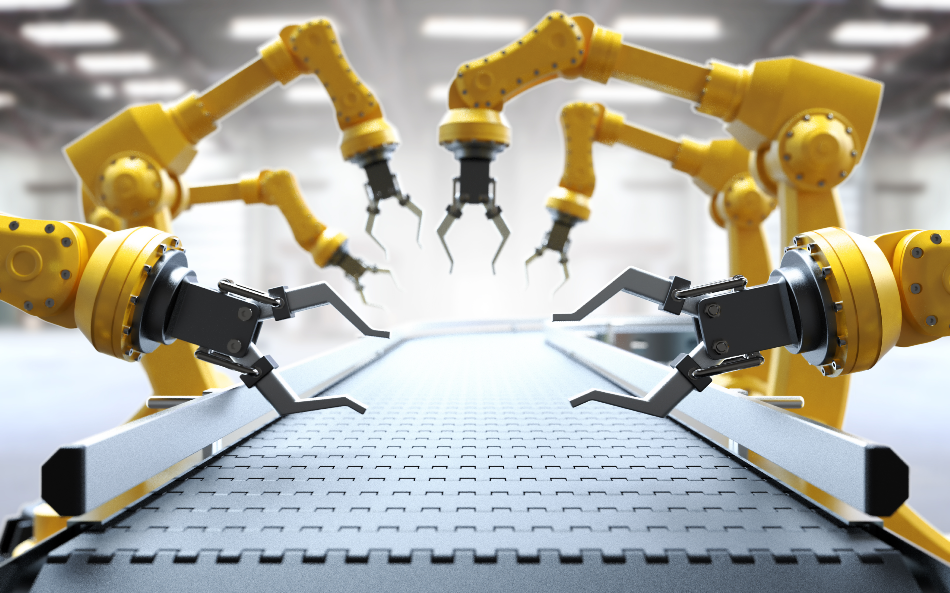
Thomas Soellner / Shutterstock
Quantum computing is the research focus of many scientists working in information technology today. This is because it promises to bring about a step-change in computing with exponentially faster processors once quantum supremacy – the theoretical state in which a quantum computer can be shown to complete any task faster than a classical electronic computer can – is reached.
Many scientists and technologists working in the field believe that this new era may be only decades away. This exponentially greater computing power will have numerous applications in many fields, including robotics.
Quantum Computers
Quantum computers replace the binary units of information (bits) given by millions of electrical transistors in a superconductor material in classical computing with quantum bits (qubits) given by manipulating the quantum mechanics of tiny particles in various ways. This means that qubits do not only offer an “on” or “off”, or one and zero, logic gate, but can also be a superposition of both one and zero, and can even be connected over a distance by quantum entanglement.
Numerous algorithms developed by quantum physicists and computer scientists have been proposed to harness the power of these particular physical properties. These include Grover’s algorithm for a quantum computer to search any set with much more speed and accuracy, Shor’s algorithm for factorizing integers much larger than any classical computer can, and the HHL algorithm for solving linear equations.
Applications in the Robotics Industry
The vastly greater processing speed that qubits could bring to robotics will have many applications and ramifications in the short and long term.
More Accurate Inputs
Quantum computers will be better able to use and operate quantum sensors. These are quantum (which means the smallest usable size) devices that use features of quantum physics like quantum coherence, quantum entanglement and quantized energy to measure physical properties much more accurately than classical sensors can. Atomic clocks, magnetometers and optical sensors like lidar all have recently incorporated quantum sensors.
This improved accuracy of input information can benefit the robotics industry by, for example, reducing margins of error for self-driving car sensors, or enabling smarter industrial robots to identify and work on numerous tasks within the factory without having to be reprogrammed each time.
Better Optimization
One of the foremost benefits of the greater processing power offered by quantum computers will be vastly superior optimization. Optimization is the mathematical or computer process of finding, to use a classic mathematics problem as an example, the shortest route a traveling salesperson could take between numerous locations.
NASA is already utilizing the D-Wave Systems quantum computer to help create optimization methods for robots they plan to send into space. These robots will need to land, find drilling sites, record temperatures and coordinate with one another with minimal or no contact with human controllers and using as little battery power as possible. Quantum computing-based optimization strategies could enable them to perform these tasks very quickly with little time or battery power wasted on errors.
Managing Bigger Networks
Quantum computers could also manage much larger networks of connected devices than classical computers can. This is again due to their superior processing power.
In robotics, this could lead to a quantum computer connected to each sensor input, and to each device in a network of robots. This will mean that human operators could observe each element of the robot’s tasks to monitor its performance, and human interaction and input would be greatly reduced, saving labor time.
Future developments in unmanned aircraft (drones), self-driving cars, and personal robots can also all be connected through the Internet of Things (IoT) into one giant network, which could only be accurately managed by a quantum computer due to its size. With quantum computing, these robots could fill our skies, roads and homes performing useful, menial tasks like delivery, transport and cleaning with minimal human intervention.
Improved Research and Development
Quantum computers can model large or complex things much more accurately than classical computers, again due to their greater processing capability. This will benefit robotics by providing designers with more accurate models and many more iterations of various designs, which can then be searched with an optimization algorithm for the best possible new technology.
Machine Learning
Finally, quantum computers promise to bring a new wave of machine learning-based advances in many fields. In this way, the robotics industry of the future will begin to self-design and program robots for more tasks, better and faster than human developers could.
Disclaimer: The views expressed here are those of the author expressed in their private capacity and do not necessarily represent the views of AZoM.com Limited T/A AZoNetwork the owner and operator of this website. This disclaimer forms part of the Terms and conditions of use of this website.